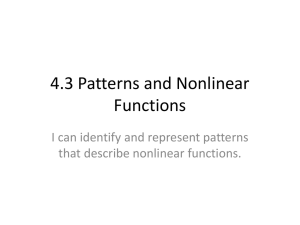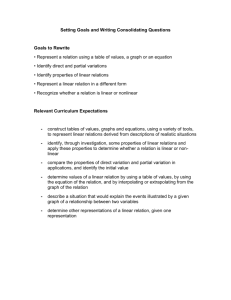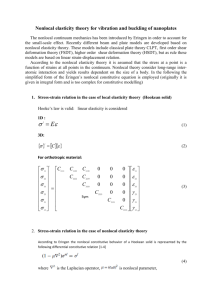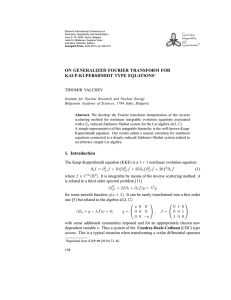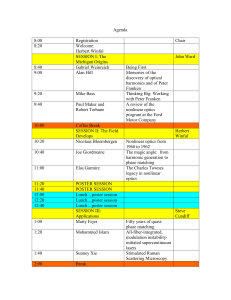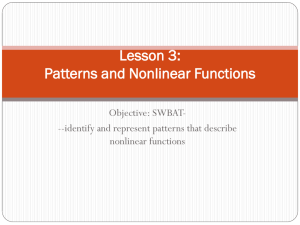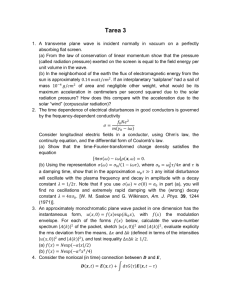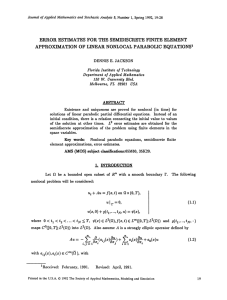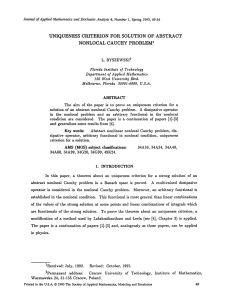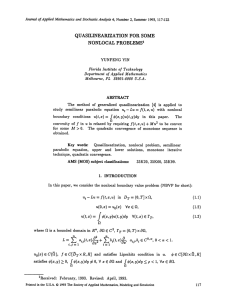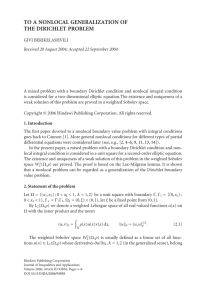HIGH FREQUENCY INTEGRABLE REGIMES IN NONLOCAL NONLINEAR OPTICS
advertisement
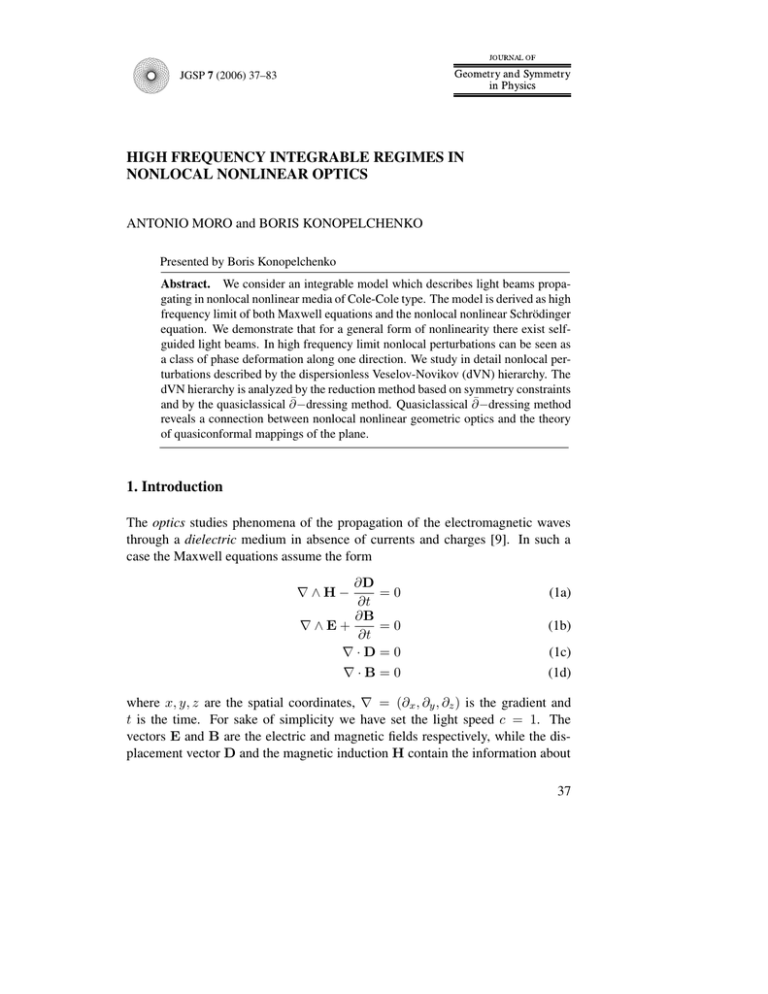
JGSP 7 (2006) 37–83 HIGH FREQUENCY INTEGRABLE REGIMES IN NONLOCAL NONLINEAR OPTICS ANTONIO MORO and BORIS KONOPELCHENKO Presented by Boris Konopelchenko Abstract. We consider an integrable model which describes light beams propagating in nonlocal nonlinear media of Cole-Cole type. The model is derived as high frequency limit of both Maxwell equations and the nonlocal nonlinear Schrödinger equation. We demonstrate that for a general form of nonlinearity there exist selfguided light beams. In high frequency limit nonlocal perturbations can be seen as a class of phase deformation along one direction. We study in detail nonlocal perturbations described by the dispersionless Veselov-Novikov (dVN) hierarchy. The dVN hierarchy is analyzed by the reduction method based on symmetry constraints ¯ ¯ and by the quasiclassical ∂−dressing method. Quasiclassical ∂−dressing method reveals a connection between nonlocal nonlinear geometric optics and the theory of quasiconformal mappings of the plane. 1. Introduction The optics studies phenomena of the propagation of the electromagnetic waves through a dielectric medium in absence of currents and charges [9]. In such a case the Maxwell equations assume the form ∂D =0 ∂t ∂B ∇∧E+ =0 ∂t ∇·D=0 ∇∧H− ∇·B=0 (1a) (1b) (1c) (1d) where x, y, z are the spatial coordinates, ∇ = (∂x , ∂y , ∂z ) is the gradient and t is the time. For sake of simplicity we have set the light speed c = 1. The vectors E and B are the electric and magnetic fields respectively, while the displacement vector D and the magnetic induction H contain the information about 37

